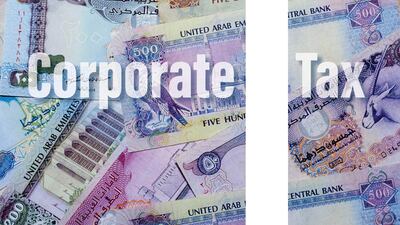The UAE's Federal Tax Authority has issued a guide for non-resident persons who derive state-sourced income in the country to help them determine whether they are subject to corporate tax.
The guide provides a clearer explanation of the standards used to identify non-residents that are liable for corporate tax.
It also outlines the situations that necessitate non-resident registration for corporate tax purposes, the process of computing taxable income and the additional obligations that non-residents must adhere to in accordance with the Corporate Tax Law, which took effect on June 1.
The UAE introduced the federal corporate tax with a standard statutory rate of 9 per cent starting from the financial year beginning on or after June 1.
In its latest guide, the FTA said it has incorporated a thorough clarification, along with broad instructions, aimed at non-resident persons, both individuals as well as public and private corporations.
The objective is to assist them in ascertaining their liability for corporate tax in the event of income generation within the UAE, it added.
A non-resident person is subject to corporate tax in specific cases, according to the guide.
For example, one situation in which a person is liable to pay tax is when they have a permanent establishment in the UAE that has a turnover of more than Dh1 million ($272,300) during a given calendar year.
Meanwhile, a legal entity that is incorporated outside the Emirates and not effectively controlled in the UAE is subject to corporate tax in three cases: if it has a permanent presence in the UAE, if it gets state-sourced income and if it has a nexus or generates revenue from immovable property in the UAE.
The property can be land, buildings, installations or equipment that forms a permanent part of the land or is permanently affixed to a building or structure.
Corporate tax registration is not required for non-resident entities that derive only state-sourced income and have neither a permanent establishment in the UAE nor a nexus in the country, the FTA clarified.
Globally, corporate tax rates have declined over the past 40 years, with the worldwide average falling from more than 40 per cent to between 25 per cent and 30 per cent, according to data from the Tax Foundation in Washington.
The UAE plans to keep the rate of corporate tax unchanged for the foreseeable future, Younis Al Khouri, undersecretary of the Ministry of Finance, told The National in January.


